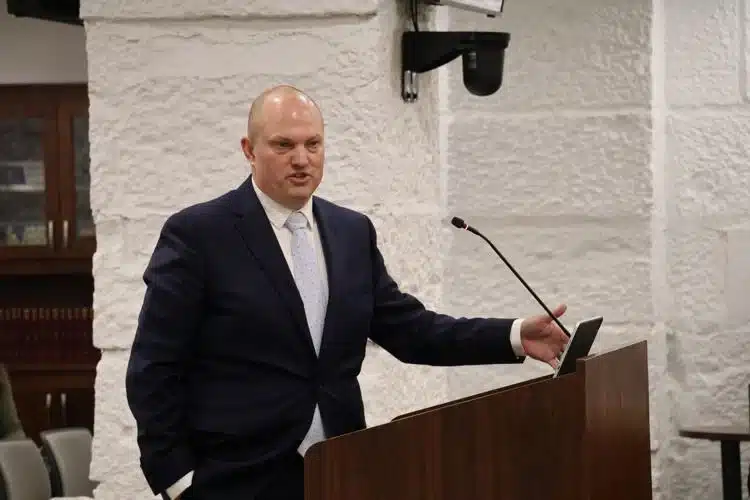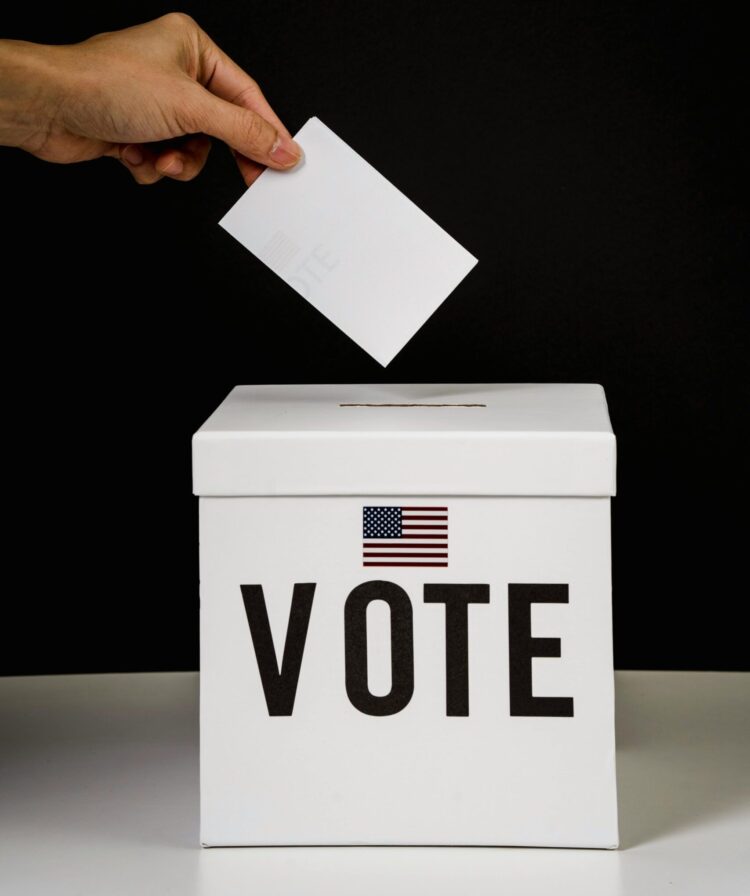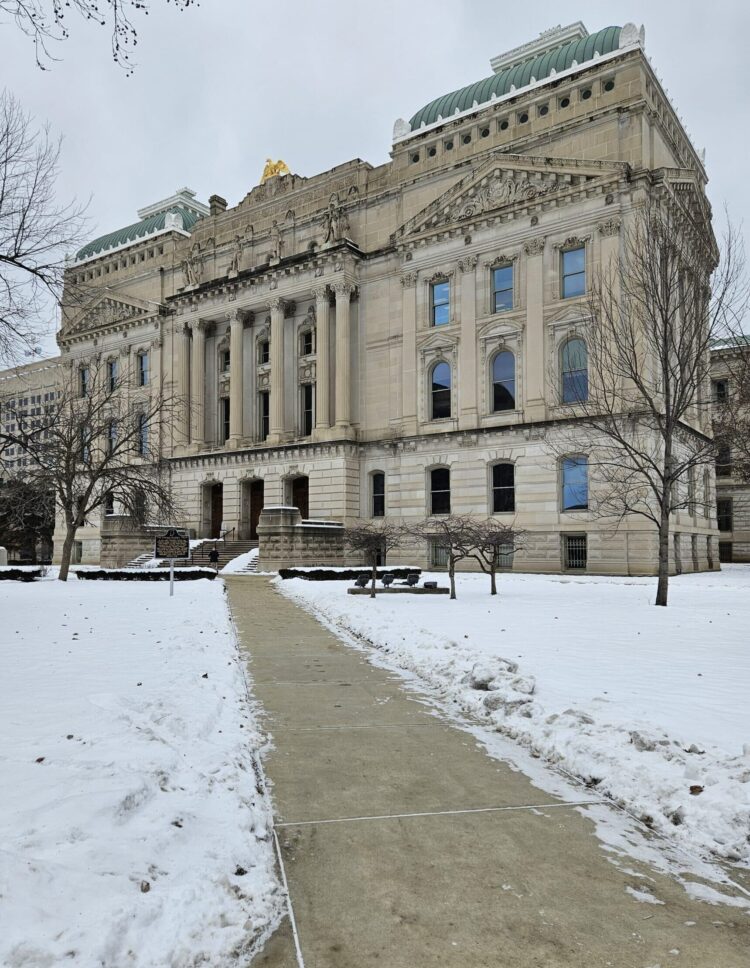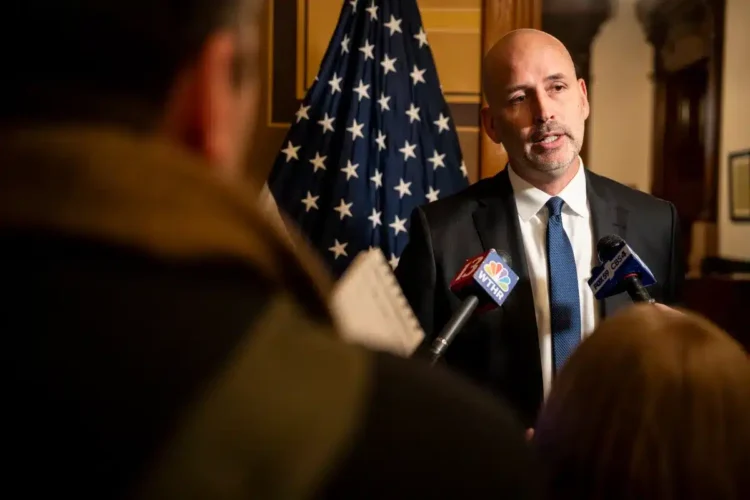The numbers come from a recent Gallup poll that asked Americans for whom they would vote for seats in the U.S. Senate and the U.S. House of Representatives if the 2026 election were held today, a generic Democrat or a generic Republican.
The results could not have been gratifying for the GOP faithful—55% Democrat, 41% Republican.
That’s the widest gap recorded in at least 50 years.
If Republicans are inclined to think of the poll as an outlier with results that do not reflect the actual mood of the country, they only need to consult the results of the just-concluded off-year elections in early November. While the high-profile gubernatorial races in New Jersey and Virginia—both blowout triumphs for not particularly inspiring Democratic candidates—commanded most of the nation’s attention, the more worrisome results for the GOP occurred in less-noticed places.
In Republican bastions such as Georgia and Mississippi, Democrats registered huge gains. In Mississippi—a state even redder than Indiana—Republicans lost their supermajority status in the state legislature.
That has been reflected here in the Hoosier state. Internal Republican polls, I’m told, reveal that Indiana Gov. Mike Braun has a 26% approval rating. Trump, who captured just under 59% of Hoosiers’ votes in the 2024 presidential election, also now is polling at well under 50% in Indiana.
Perhaps that’s why one veteran GOP political professional told me privately that he thought—no, he feared—Republicans were headed for a bigger drubbing at the polls in 2026 than they experienced in 1974, when anger and fatigue over the Watergate scandal and President Richard Nixon’s ignominious departure from the White House shattered the party’s prospects.
“We’re going to get thumped and thumped hard,” he confided.
Democrats may want to interpret this as a vote of confidence in them and their policies, but the truth is that they have little to do with this reversal of fortune. Voters are turning to them in weariness and frustration, not because any particular Democratic leader or policy has spoken to or inspired them.
No, the responsibility for this sudden and steep decline resides exclusively with Republicans themselves.
Particularly, the leader they so slavishly follow.
President Donald Trump.
Americans turned to Trump and the GOP last year because they were dismayed by former President Joe Biden’s seeming obliviousness to their distresses, most notably their rising concern over inflation.
Trump secured a second chance with voters because he vowed to bring prices under control. He said he would put an end to their misery.
But he didn’t.
Instead, on the rare occasions when he’s focused on public policy, Trump has pursued initiatives—scattershot tariffs, etc.—that have increased prices even more.
Most of his time, though, he’s devoted to pursuing personal vendettas and his own private agendas. The message to the people who voted for him is that the interests Donald Trump is concerned about are his own.
Hence, the GOP’s plummeting poll numbers.
Because Trump is savvy enough to know that, under existing conditions, his prospects of winning a fair fight at the ballot box are small, his only option is to try to rig the game. That’s why he’s been so focused on his unprecedented campaign to redraw congressional maps in the middle of the census cycle.
But this puts Republicans in a pickle.
Public support for altering the maps outside the cycle—particularly for such naked partisan reasons—is as popular with voters as the flu. Even in heavily Republican districts in Indiana, opposition to the president’s Congress-packing plan is fierce.
Donald Trump won’t be on a ballot again. He doesn’t have to fear the wrath of voters he’s battling to disenfranchise.
But the Republican Indiana lawmakers he’s squeezing to rig the game in his favor will have to face the voters again—and soon. If Hoosiers are angry about the president’s attempts to evade both responsibility for his own actions and accountability for ignoring their wishes, they will take their anger out on their local lawmaker.
Not Donald Trump.
That’s why Republicans in the Indiana General Assembly have gone through such gyrations over whether to have a special session to deal with redistricting.
Their president has put them in a classic dilemma.
Damned if they do.
Damned if they don’t.








